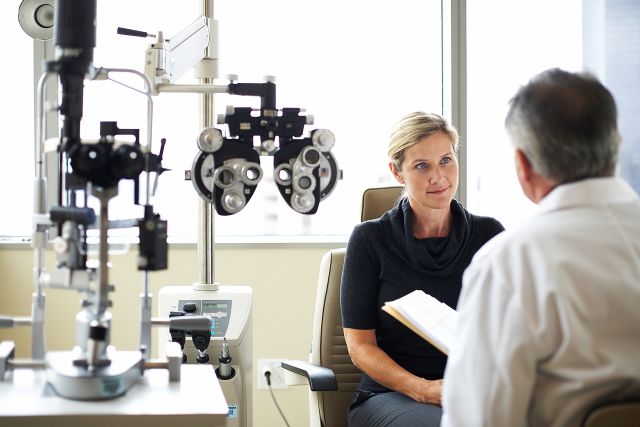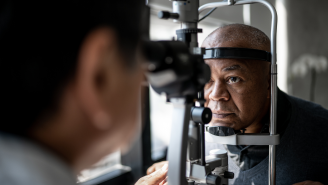Whether you've scheduled a routine eye exam or have a special appointment with an eye doctor because of new symptoms, you'll get more out of your visit if you come prepared.
Step one: Think about the information you want to share, and write it down beforehand.
Step two: Know what questions to ask. A good dialogue with your doctor is key to understanding your own risk factors for eye disease as well as to determining the best course of action to take. Not sure what to ask? We've prepared a printable list of questions to help you get the conversation going in the right direction.
15 Questions to Ask
On Risk Factors
- Do I have any risk factors for eye disease (age, ethnicity, family history, etc.)?
- If I'm at risk for certain eye conditions, what can I do to lower or manage that risk?
On Symptoms
- What's causing my vision changes or symptoms?
- Are my vision changes a normal part of aging, or could they be a sign of something more serious?
- Will my vision problems get worse?
- What can I do to correct or manage my eye or vision problems?
On Eye Tests
- Based on my symptoms and risk factors, which eye tests should I receive, and how often?
- Did my eye exam or test results reveal any changes in my vision since my last eye exam? What do those changes mean?
- Do I need additional testing, and if so, when should I come back for that, and how should I prepare?
- Are there any potential side effects or risks posed by the eye tests I'll be receiving?
On Treatments
- What are the treatment options for my vision loss or eye problems?
- What are the possible side effects or risks involved in the treatment you recommend?
- Are there any medications I should avoid, given my eye condition?
- What habits should I adopt to help protect my eyes and reduce my risk of disease?
- What else can I do to protect my remaining vision?
Before You Walk Away
Asked all your questions? Great! Now, before you walk away, make sure you understand all the answers, and ask more questions if you don't. Understanding the information your doctor shares helps establish an effective working partnership with your eye doctor. Working together, you can take key steps toward maintaining good vision and reducing your risk for serious eye problems down the road.
What kind of eye care professional should you see? Read this article to understand who's who.
Medically reviewed in November 2019.






